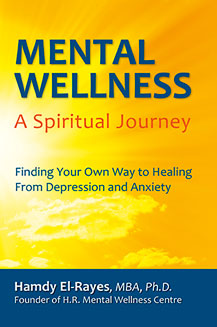May is “Mental Health Month”. It has been celebrated in the USA in 1949 to raise awareness of mental health conditions and available help to address them.
The focus on mental health and treating the symptoms of mental illness have proven to be an unsuccessful policy to rid the society of mental illness. On the contrary, studies show that mental illness has been on the rise. Severe depression is ten times more prevalent today than it was 50 years ago, and now it strikes a full decade earlier in life on average than it did a generation ago. Consequently, the economic cost of mental illness has been escalating. In Canada and the USA, the annual economic cost of mental illness is estimated to be more than $33 billion and $318 billion, respectively, with the single biggest factor being depression. In 2005, there were estimated 24.9 million adults aged 18 or older in the USA with serious psychological disorder. This represents 11.3 percent of all adults in the country.
Since January 2006, H.R. Mental Wellness Centre has been established to promote mental wellness for all–whether you are seeking to heal from depression and anxiety or you are pursuing self-actualization to become the best you.
It is time to change the month from “Mental Health Month” to “Mental Wellness Month” for many reasons.
Mental health is defined as the absence of a major mental-health condition, as described in the Diagnostic and Statistical Manual of Mental Disorders (DSM). Mental health focuses on ridding the patient of symptoms of mental illness. Individuals are deemed mentally healthy if they are not suffering from psychological dysfunction or impairment, such as anxiety or depression. If you do not have symptoms that meet the diagnostic criteria, you are deemed mentally healthy. However, freedom of symptoms does not mean that you are mentally well or your mind is functioning as well as it could be.
Mental wellness, on the other hand, goes beyond the concept of mental health. It presents a shift in focus away from illness and symptoms to a holistic approach that emphasizes a view of the entire being and the ability to reach the peak of psychological health‒‒self-actualization.
Mental health is a static state of being—you are either mentally healthy or mentally ill. In contrast, mental wellness is an active life-long process of making choices that will guide you to reach your potential and live life to its fullest. We can see here that mental wellness is our way to well-being. It is better for us to pursue as individuals or as a community. When we can become our best, we have a healthier, happier society. Most importantly, it unites us as a community with an a well defined goal to pursue, without any discrimination between those who are mentally healthy or mentally ill.







